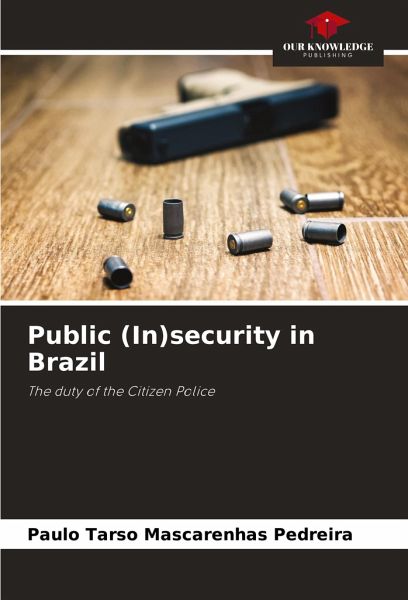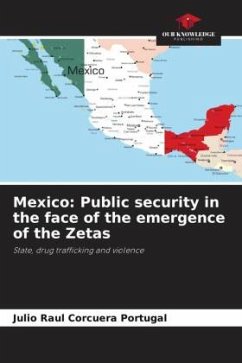
Public (In)security in Brazil
The duty of the Citizen Police
Versandkostenfrei!
Versandfertig in 6-10 Tagen
41,99 €
inkl. MwSt.

PAYBACK Punkte
21 °P sammeln!
The need to build a Citizen Police arose in political contexts where government and police authorities were worn down and discredited, both by the population's disbelief in the efficiency of security forces in solving crime problems, and by citizens' distrust and fear of police officers whose presence generated conflict. The problem is exacerbated when the police, like other public institutions such as schools and prisons, insist on investing in traditional resources and ideas that are bureaucratically safe but no longer work. This phenomenon is expressed by the crisis in the prison system, th...
The need to build a Citizen Police arose in political contexts where government and police authorities were worn down and discredited, both by the population's disbelief in the efficiency of security forces in solving crime problems, and by citizens' distrust and fear of police officers whose presence generated conflict. The problem is exacerbated when the police, like other public institutions such as schools and prisons, insist on investing in traditional resources and ideas that are bureaucratically safe but no longer work. This phenomenon is expressed by the crisis in the prison system, the result of the commercial war between organized crime factions for control of drug trafficking, and an anachronistic policing format based on ostensiveness that prioritizes the use of force and a militarized apparatus that has historically proven to be inefficient and outdated. In view of this, we ask ourselves: what can be done when existing strategies to combat criminal violence fail?














